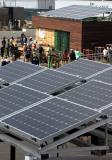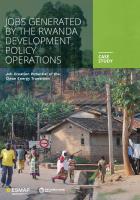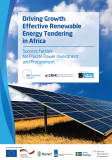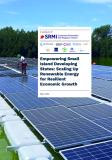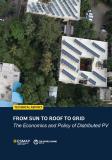Publications
This report presents the findings and conclusions of a case study undertaken under a program of analytical work that investigates the impacts of the global transition to clean energy on the quantity and quality of jobs in low- and middle-income countries. The World Bank supported the government of Rwanda in institutionalizing least-cost principles for power-sector expansion through a series of three consecutive annual Development Policy Operations (DPOs) between 2017-2018 and 2019-2020. The objective was to enable fiscally sustainable expansion of electricity services in Rwanda while improving operational efficiency, affordability, and accountability. The case study found that while there was some association between electricity reforms and job creation in Rwanda, the link was not straightforward, and the impact on formal employment was limited. Other factors and constraints, as well as the time required for infrastructure improvements to translate into employment outcomes, may have played significant roles in shaping the labor market. In summary, while there was some association between electricity reforms and job creation in Rwanda, the link was not straightforward, and the impact on formal employment was limited. Other factors and constraints, as well as the time required for infrastructure improvements to translate into employment outcomes, may have played significant roles in shaping the labor market.
Explore More
Case Studies
Dobrotková, Zuzana; Pargal,Sheoli; Aghababyan,Anna; Pedersen,Anders.
Jobs Generated by the Rwanda Development Policy Operations - Job Creation Potential of the Clean Energy Transition : Case Study (English). Washington, D.C. : World Bank Group. http://documents.worldbank.org/curated/en/099012324075541071/P1764381e022580561935f12cb0e35df8b4
